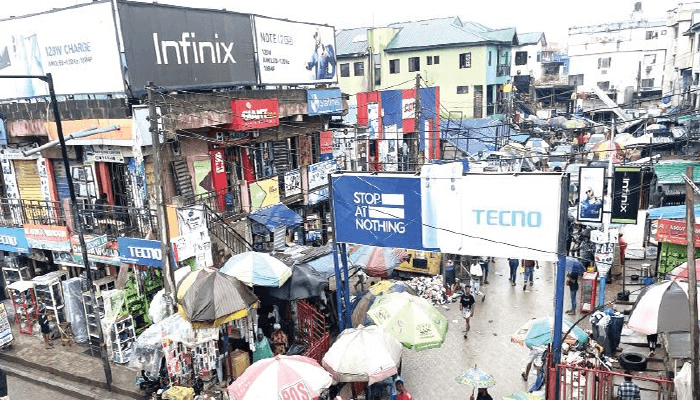The extra mile discount – Businessday NG
If you have ever visited Alaba market or Computer Village, you will experience traders calling out to you as you walk past their stalls saying offering discounts and deals. If you decide to explore, you will find yourself winding through a row of shops and kiosks and hopefully get your purchase for N500 less. When you’re asked why you went through the stress, “At least I know I got value.”
That small phrase captures what I call The Extra Mile Discount. It is the psychological reward Nigerians attach to effort spent securing a deal. It is the invisible satisfaction bonus that comes from travelling farther, bargaining longer, or working harder for a lower price.
Effort as Value
Nigerian consumers frequently equate exertion with savings. Whether it is driving from Ojota to Mile 12 for cheaper groceries or calling five mechanics before choosing one, the diligent search for value becomes proof of prudence. The discount may be marginal, but the story is priceless.
This mindset has roots in effort justification, a concept from behavioral psychology which states that people value outcomes more when they invest effort to obtain them. A study by Ariely and Norton (2009) confirmed that labour increases valuation; participants who built simple items themselves valued them up to 63 percent higher than identical pre-built versions (Journal of Consumer Psychology). This is central to the business strategy of Ikea, the Swedish DIY furniture conglomerate. Nigerians have adapted this instinct to the marketplace such that savings only feel real when sweat is involved.
Distance as Proof
Research from EFInA shows that Nigerian consumers frequently travel beyond their local area to secure better prices or perceived authenticity, even when transport costs erode the savings (EFInA Access to Financial Services Survey, 2020). The trip itself carries symbolic weight. It demonstrates diligence and reduces fear of being “cheated.”
For consumers that buy from open markets, distance often equals credibility. Electronics bought “Alaba market” or fabrics from “Balogun market” command trust because they required effort to obtain. Even when similar products exist nearby, proximity sometimes signals compromise, while distance signals seriousness.
Negotiation as Exercise
The bargaining process mirrors a physical workout. Each round of pricing strengthens the buyer’s belief that they have earned a discount. Sellers understand this dance. They build “stretch” into opening prices, allowing buyers the satisfaction of earning reductions. Without that back-and-forth, many Nigerians feel uneasy, as if they have skipped a necessary ritual of fairness.
In interviews with Lagos market traders, researchers from the University of Lagos found that 78% deliberately inflate initial quotes to preserve room for negotiation, describing haggling as “proof of seriousness” rather than deception. The exchange validates both sides. The buyer walks away convinced they’ve won. The seller retains dignity by appearing flexible, not cheap.
The Commuter Economy
Transportation embeds the Extra Mile Discount in daily life. A commuter might bypass a filling station in Ikeja to buy fuel in Ogba where it is N5 cheaper per litre. Rationally, the savings vanish after the drive. Emotionally, they gain control. The sense of beating the system feels like victory, particularly in our volatile economy.
Behavioural economists call this mental accounting. The consumer separates transport cost from purchase cost, seeing the discount as gain and the journey as an independent effort. The longer the journey, the stronger the narrative of thrift.
Digital Paradox
Online shopping tests this habit. Nigerians often distrust deals that feel “too easy.” Clicking “buy now” lacks the physical validation of effort. To recreate struggle, e-commerce sites now use flash-sales, countdowns, and limited-stock alerts. These tactics simulate the chase that consumers expect before earning a reward.
Platforms like Jumia and Konga observed higher conversion rates during such timed events. According to a 2023 Jumia report, time-bound offers increased sales by 42%, suggesting that simulated effort (the race against the clock) triggers the same psychological satisfaction as travelling for a discount.
Social Signalling
The Extra Mile Discount also functions as social currency. Nigerians enjoy narrating how they found it “cheaper at Mushin” or “direct from factory.” The tale of distance elevates the buyer’s status within their circle as a smart and resourceful consumer.
For Nigerians, resourcefulness equates to intelligence and bragging rights. Getting a discount proves street wisdom beyond the savings. To have “priced it well” is to have showed competence.
Implications for Business
1. Acknowledge the chase. Marketing that recognises effort (“You’ve earned this deal”) validates consumers’ sense of achievement.
2. Engineer visible struggle. Introduce limited-time offers, loyalty milestones, or challenge-based rewards to recreate the satisfaction loop.
3. Communicate origin stories. Products that highlight distance travelled or craftsmanship tap into the same psychology, suggesting that effort equals authenticity.
4. Simplify without insulting. While convenience sells, total ease may feel suspicious. Maintain small friction points that reassure buyers they have earned value.
Conclusion
The Extra Mile Discount is tied to the preservation of the dignity of the consumer. Nigeria is a low-trust economy, so effort becomes evidence of wisdom. Nigerians want to feel that they worked for their wins.
For businesses, there is enormous value in the path that leads to the acquisition of your product or service. The customer’s journey (literal or digital) carries emotional weight. In Nigeria, effort is the proof of value.

